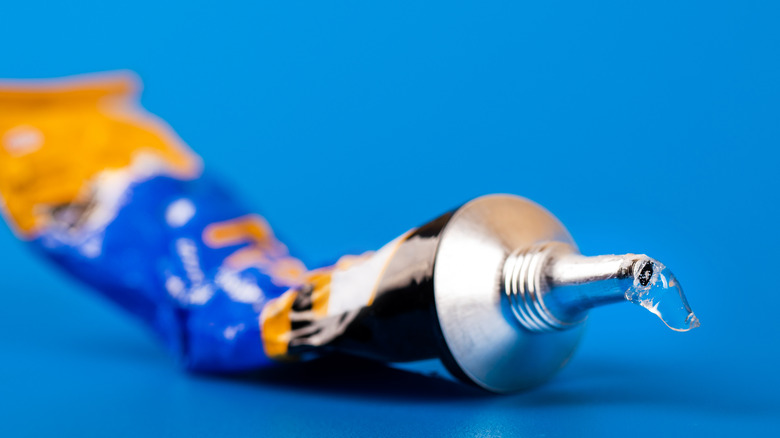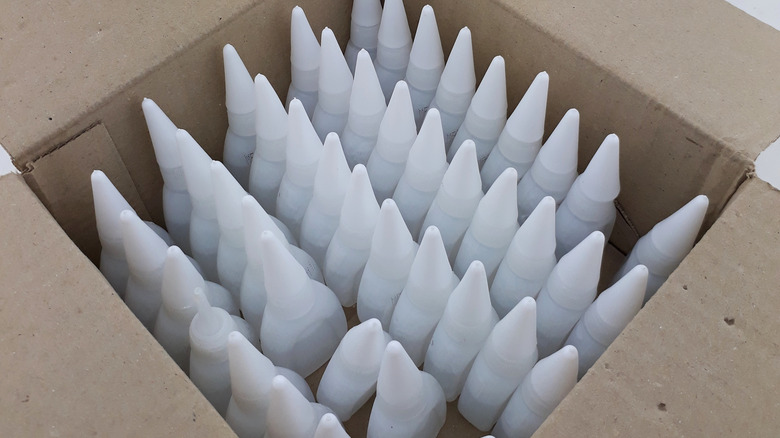The Most Important Place To Use Superglue In Your Home That You're Probably Missing
Super strong and super versatile, superglue works on almost any material to form a nearly unbreakable bond that is waterproof, temperature resistant, and permanent. The adhesive was the brainchild of a World War II-era researcher attempting to develop a transparent plastic for gun sights. He succeeded halfway: He did create plastic, but it stuck permanently to everything it touched, as reported in Today I Found Out. His sticky product was eventually commercialized as superglue in the late 1950s. According to Loctite, it was immortalized in the Guinness Book of World Records after a 10,000-pound automobile was lifted using just 9 drops of the stuff.
Superglue use typically involves fixing a broken knick-knack, repairing a frayed wire, gluing a cracked plate, or fortifying a picture frame. However, in addition to those prosaic, minor DIY repairs, there is a surprising home use for the super adhesive. This versatile glue is capable of bonding almost anything, including your own skin. In fact, the next time you suffer a knife or paper cut, consider using superglue to close the wound. Your at-home treatment might just save you a trip to the emergency room.
Medical superglue
The FDA has approved Dermabond, a superglue designed for medical use. Known as surgical glue or skin glue, the medical adhesive is more flexible than the hardware type, according to Healthline. These types of superglue can be used at home, but are not indicated for use in all cases. They are not suitable to self-administer for deep, wide, or jagged cuts, or for closing burns, treating wounds in certain locations, or animal bites.
On the plus side, superglue has been used on the battlefield since World War II to stop the bleeding in potentially fatal wounds. A spray version first appeared in Vietnam. The adhesive is used in emergency rooms and during surgery and is a faster and less painful alternative to sutures. No follow-up is needed for stitch removal and suture infection is not an issue. Moreover, the adhesive acts as a waterproof barrier to bacteria, including some that do not respond to antibiotics. The glue is fast-drying and will not fall off the wound as would a bandage. The cut remains covered, closed, and clean. Even the Mayo Clinic describes using the glue as a good approach that can potentially lessen scarring, making superglue an extremely useful product to keep around the home in case of an emergency.

